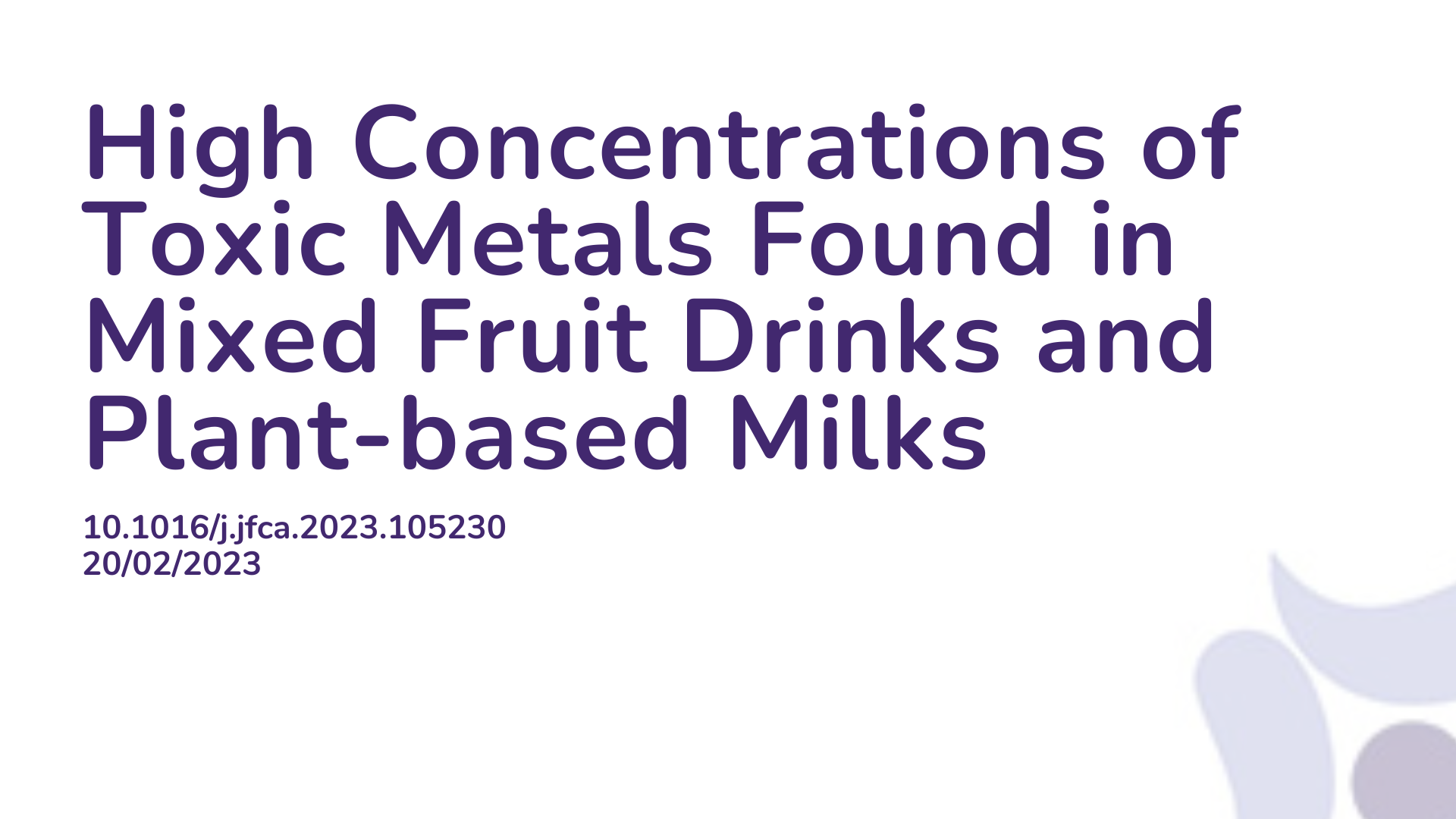Summary:
The purpose of this study was to determine whether there are toxic concentrations of metals in a variety of common household beverages such as soft drinks, plant-based milks, teas and mixed fruit juices. The authors also compared the levels with what is believed to be acceptable according to national safety standards in the United States. Of the 60 drinks tested, 5 of those contained levels of toxic metals above what is federally recommended to consume from tap water. Two mixed juices also had levels of arsenic above the recommended safety amount. A common cranberry juice and other mixed fruit drinks on US supermarket shelves, as well as a particular brand of oat milk each had levels of cadmium exceeding the standard. Each beverage was measured for a total of 25 toxic metals. Whilst the mixed fruit drinks produced levels of elements above the recommended amount, it was plant-based milks such as oat and almond milk that contained the highest concentrations of toxic metals.
Abstract:
Elevated levels of toxic metals and essential elements in commonly consumed soft beverages are of public and regulatory agencies’ concern, and thus frequent monitoring of these elements is critically important. The study determined 25 elements in 60 soft beverages: single fruit juice, mixed fruit juice, plant-based milk, artificial/soda, and tea purchased in New Orleans, Louisiana, and commercially availabe in the United States. Elemental concentrations were determined using ICP-MS. The 95th percentile concentration ranges of the elements were: 0.06–5 µg/kg (Tl, Sb, Th, Pb, Cd, Co); 5–15 µg/kg (As, U, Se); 20–40 µg/kg (Mo, Li, Cr); 200–450 µg/kg (Ni, Ba, Cu); 1500–2000 µg/kg (Al, B); 4000–6000 µg/kg (Fe, Sr, Zn, Mn); and 125–2000 mg/kg (Mg, Na, Ca, K). Seven of the 25 elements—Ni, Mn, B, Cd, Sr, As, and Se—exceeded the drinking water standards in 38.3%, 36.7%, 16.7%, 5%, 5%, 3.3%, and 1.6% of the beverage samples, respectively. Aluminum and Zn exceeded the secondary non-enforceable drinking water standards in 40% and 6.7% of the samples, respectively. Mixed fruit juices and plant-based milk frequently contained elevated concentrations of most of the elements. While toxicity is unlikely unless individuals consume a large volume, moderating consumption of these beverages is required, especially to protect infants and young children. Regular monitoring of these chemicals in beverages is required for food safety and to provide sound nutritional advice.
Article Publication Date: 20/02/2023
DOI: 10.1016/j.jfca.2023.105230



